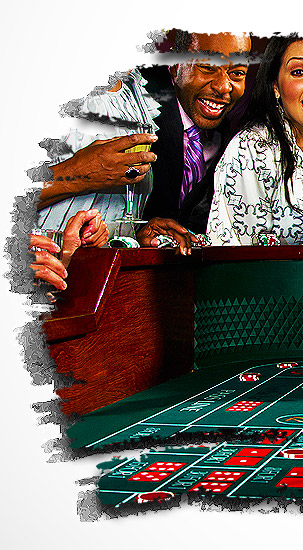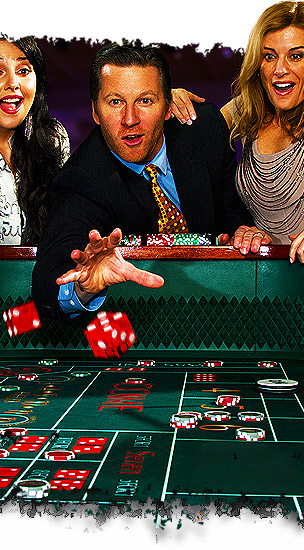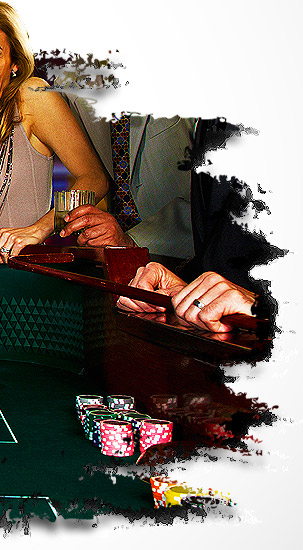Craps History
Some believe that Craps originated from soldiers of the Roman Legions playing with pig knucklebones shaped into cubes at the time of the Holy Roman Empire. They would "roll the bones" onto their shields for entertainment.
Craps, as we know it today, comes from the French pronunciation of the word, "Crabs" a nickname for the earlier game of Hazard.
Hazard was developed in the 1700's and was played by members of the European aristocracy before arriving to America through the French Louisiana colony of Arcadia.
In 1813, Bernard de Mandeville of New Orleans simplified and transformed Hazard into the first version of Craps. Mandeville's adaptation of Hazard traveled up the Mississippi River on steamboats, spreading throughout the United States.
However, Mandeville's version of Craps had one major flaw - the game was vulnerable to the use of fixed dice due to its betting rules.
John H. Winn fixed this problem by introducing the possibility for players to bet 'right' or 'wrong' in the layout of the craps table, including a space for 'Don't Pass' bets. Winn's adjustments revolutionized Craps, eliminating the usefulness of fixed dice and making it possible for players to bet for or against the shooter.
World War II also witnessed soldiers using craps in its modern form as entertainment, which gained immense popularity as a way for them to break the monotony of war. Even movies included the game in their story lines as casino Craps took over the gambling world.
In the 1990's, craps lost much of its popularity as slot machines and other casino favorites began pulling in the majority of gamblers. Recently, Craps has shown signs of making a comeback into the gambling scene since entering the 21st century. Technological advances, such as the option of playing craps online, have also contributed to the return.
The game of craps has been around for hundreds of years and will continue to hold an important place in gambling tradition.



